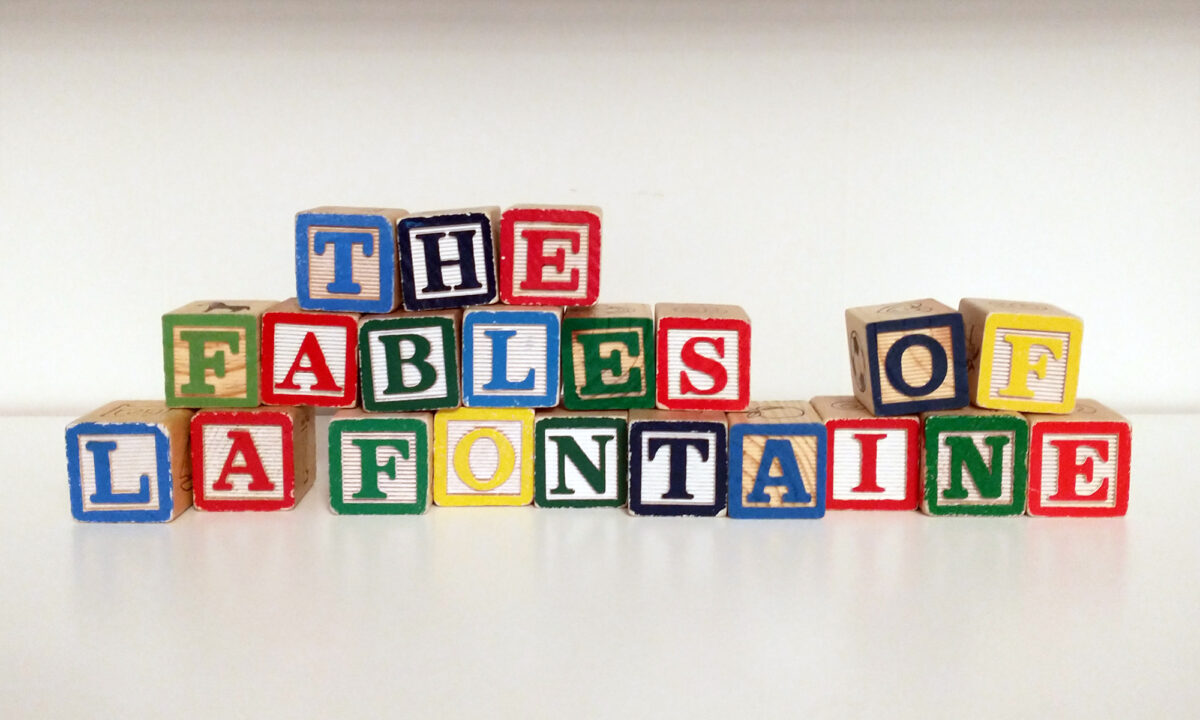Generations of French children have grown up reading and memorizing the Fables of Jean de La Fontaine, and these stories have had a huge impact on the French language.

You can’t really be fluent in any language unless you know certain stories, songs, and figures of speech, most of which are learned in childhood. Native speakers of French are almost automatically familiar with the Fables of Jean de La Fontaine, who collected and retold 239 fables in twelve books. Each story contains pithy phrases and morals that show up repeatedly in common speech, news articles, political cartoons, and even scientific papers.
This episode takes a look at one of La Fontaine’s Fables — Les Animaux Malades de la Peste, or Animals Sick with the Plague. Originally written by Aesop, this is a deeply political tale that is sadly still relevant today with its moral warning that it is easy for the powerful to escape justice, instead heaping blame upon a weaker — and innocent — scapegoat.
Activity: The Moral of the Story . . .
Have students read one of the Fables of La Fontaine. If you or your kids are able to read French, the original versions can be found here:
www.la-fontaine-ch-thierry.net/fables.htm
A selection of the Fables translated into English can be found here:
en.wikisource.org/wiki/The_Original_Fables_of_La_Fontaine
After reading a fable, have students fill out this printable worksheet, which has spaces for the following:
-
-
- Name of the fable
- Origin of the fable (Aesop? Horace? A French folktale?)
- Most interesting sentence in the fable
- What is the moral of this story?
- How can you use this moral to improve your life?
Students can then share their findings with one another.
Activity: Translating Important French Phrases from the Fables
This activity is appropriate for kids who are learning the French language and have enough ability to engage in short translations. Below is a list of some commonly quoted phrases from the Fables de La Fontaine. Alone, in pairs, or in small groups as appropriate, have students translate one or more of the phrases into their native language. Then, ask the students to try to figure out what the moral means. It may be necessary to read the fable from which the quote is derived in order to get good context. Students should then share their findings with one another.
| Title of Fable – Book, Number |
Quotation |
| La Cigale et la Fourmi – I, 1 |
Eh bien ! Dansez maintenant. |
| Le Corbeau et le Renard – I, 2 |
Apprenez que tout flatteur, vit aux dépens de celui qui l’écoute. |
| Le Loup et l’Agneau – I, 10 |
La raison du plus fort est toujours la meilleure |
| Les Frelons et les Mouches à miel – I, 21 |
À l’œuvre on connaît l’artisan. |
| Le Lion et le Rat – II, 11 |
On a souvent besoin d’un plus petit que soi. |
| Le Renard et le Bouc – III, 5 |
En toute chose il faut considérer la fin. |
| Le Petit Poisson et le Pêcheur – V, 3 |
Petit poisson deviendra grand, pourvu que Dieu lui prête vie. |
| Le Petit Poisson et le Pêcheur – V, 3 |
Un Tiens vaut, ce dit-on, mieux que deux Tu l’auras. |
| Le Lièvre et la Tortue – VI, 10 |
Rien ne sert de courir; il faut partir à point. |
| Le Chartier embourbé – VI, 18 |
Aide-toi, le Ciel t’aidera. |
| Le Lion amoureux – IV, 1 |
Amour, Amour, quand tu nous tiens, on peut bien dire: Adieu prudence. |
| L’Ours et les Deux Compagnons – V, 20 |
Il m’a dit qu’il ne faut jamais, vendre la peau de l’ours qu’on ne l’ait mis par terre. |
| Les Animaux Malades de la Peste – VII, 1 |
Ils ne mouraient pas tous, mais tous étaient frappés. |
| Les Animaux Malades de la Peste – VII, 1 |
Crier Haro sur le baudet. |
| Les Animaux Malades de la Peste – VII, 1 |
Selon que vous serez puissant ou misérable, les jugements de cour vous rendront blanc ou noir. |
| Les Lapins – X, 15 |
Mais les ouvrages les plus courts sont toujours les meilleurs. |
| Le Milan et le Rossignol – IX, 18 |
Ventre affamé n’a point d’oreilles. |






